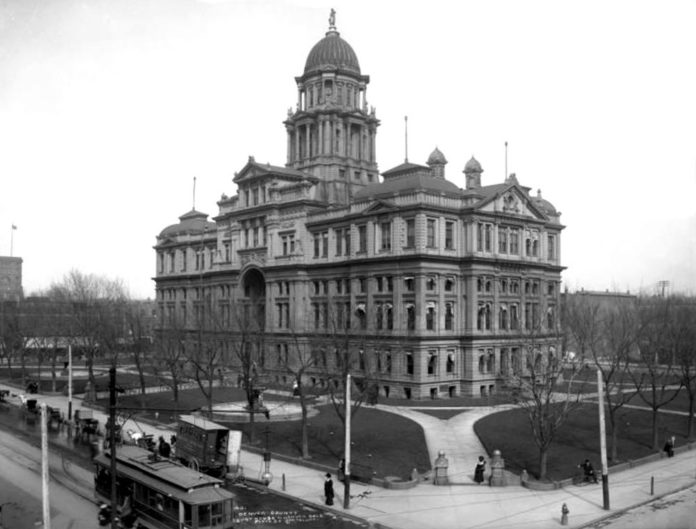

In late 1893 and winter of 1894, Denver fell into a severe economic depression. The most secure jobs at the time seemed to be government positions but by March of 1894, mass firings and layoffs became a bleak certainty for most city residents. That month would become infamous in Denver’s history, as police and fire department board members refused to vacate their positions and barricaded themselves in City Hall before then-Gov. Davis Waite ordered the Colorado Army National Guard to aim full-size, military-grade cannons at the building in hopes of driving the protestors out.
Between March 4 and April 18, the armed men remained barricaded in the building and by March 14 were joined by “the Denver Police Department and a few Arapahoe County Deputy Sheriffs,” according to records obtained by History Colorado. After waiting just over a week, Gov. Waite called in COARNG to forcibly remove the men in City Hall. Denver residents reportedly urged Waite to take the matter to the Colorado Supreme Court before the situation could escalate. By March 25, the court ruled that the governor had the power to remove the men from their posts but lacked the power to use force to get the men out by ordering the Infantry to storm the building or otherwise damage property by firing cannons at or near City Hall.
The court stepped in to resolve the matter after formally reprimanding Waite on his knee-jerk reaction. On April 18, the men complied with a Supreme Court order to vacate their positions and an implied request to exit the building peacefully. The repercussions of this incident reverberated through the courts, the governor’s seat and with the police force and fire department.
The Arapahoe County Sheriff William Burchinell, who feared additional acts of violence from the governor if the department remained in a position of perceived insubordination with his office, ordered 50 custom rifles to better arm the police department in case of another conflict.
Witnesses, who were drawn quickly to the scene after COARNG arrived with munitions, were alarmed by the presence of cannons near the government buildings in Denver and became wary of Waite’s seemingly immediate inclination toward extreme violence, and he subsequently lost his re-election bid.
– Jess Brovsky-Eaker, [email protected]

